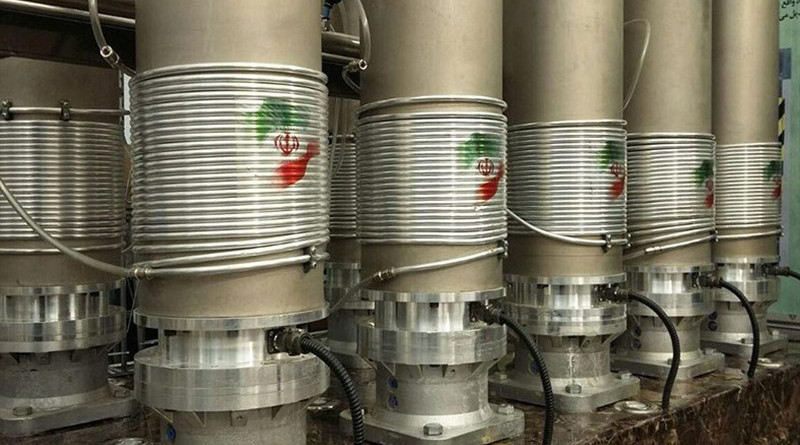IAEA Says Iran’s Enriched Uranium Stockpile 10 Times Over Limit
By RFE RL
(RFE/RL) — Iran’s stockpile of enriched uranium continues to increase and now stands at more than 10 times the limit set down in the 2015 nuclear deal with world powers, the UN nuclear watchdog said in a report on September 4.
But the International Atomic Energy Agency (IAEA) also said that Iran has begun providing access to sites where the country was suspected of having stored or used undeclared nuclear material.
According to the IAEA quarterly report, Iran as of August 25 had stockpiled 2,105.4 kilograms of low-enriched uranium, up from 1,571.6 kilograms last reported on May 20.
The 2015 deal — known as the Joint Comprehensive Plan of Action (JCPOA) — allows Iran only to keep a stockpile of 202.8 kilograms.
The IAEA said that Iran has also been continuing to enrich uranium to a purity of up to 4.5 percent, higher than the 3.67 percent allowed under the deal with world powers.
Before the JCPOA, Tehran had enriched its uranium to 20 percent, which is considered a quick technical jump to weapons-grade level of 90 percent.
According to the Washington-based Arms Control Association, to produce one nuclear bomb Iran would need 1,050 kilograms of uranium enriched at 3.67 percent, and would then need to enrich it further to 90 percent purity or above.
Experts say if Iran chose to produce a nuclear bomb its breakout time would be at least three to six months, but that it would take much longer to actually weaponize a device. While the JCPOA was in full effect, Iran’s breakout time was estimated at more than one year.
However, Iran’s stockpile of heavy water had decreased and is now back within the limits set by the JCPOA, the nuclear watchdog said.
The nuclear deal – signed with the United States, Germany, France, Britain, China, and Russia — promised Iran economic incentives in return for the curbs on its nuclear program.
In 2018, President Donald Trump unilaterally pulled the United States out of the nuclear deal and reimposed crushing sanctions, saying it needed to be renegotiated.
Since then, Iran has announced gradual violations of JCPOA restrictions. The remaining parties to the deal maintain that even though Iran has been violating many of the pact’s terms, it is important to keep the deal alive because Iran has continued providing the IAEA with critical access to inspect its nuclear facilities.

